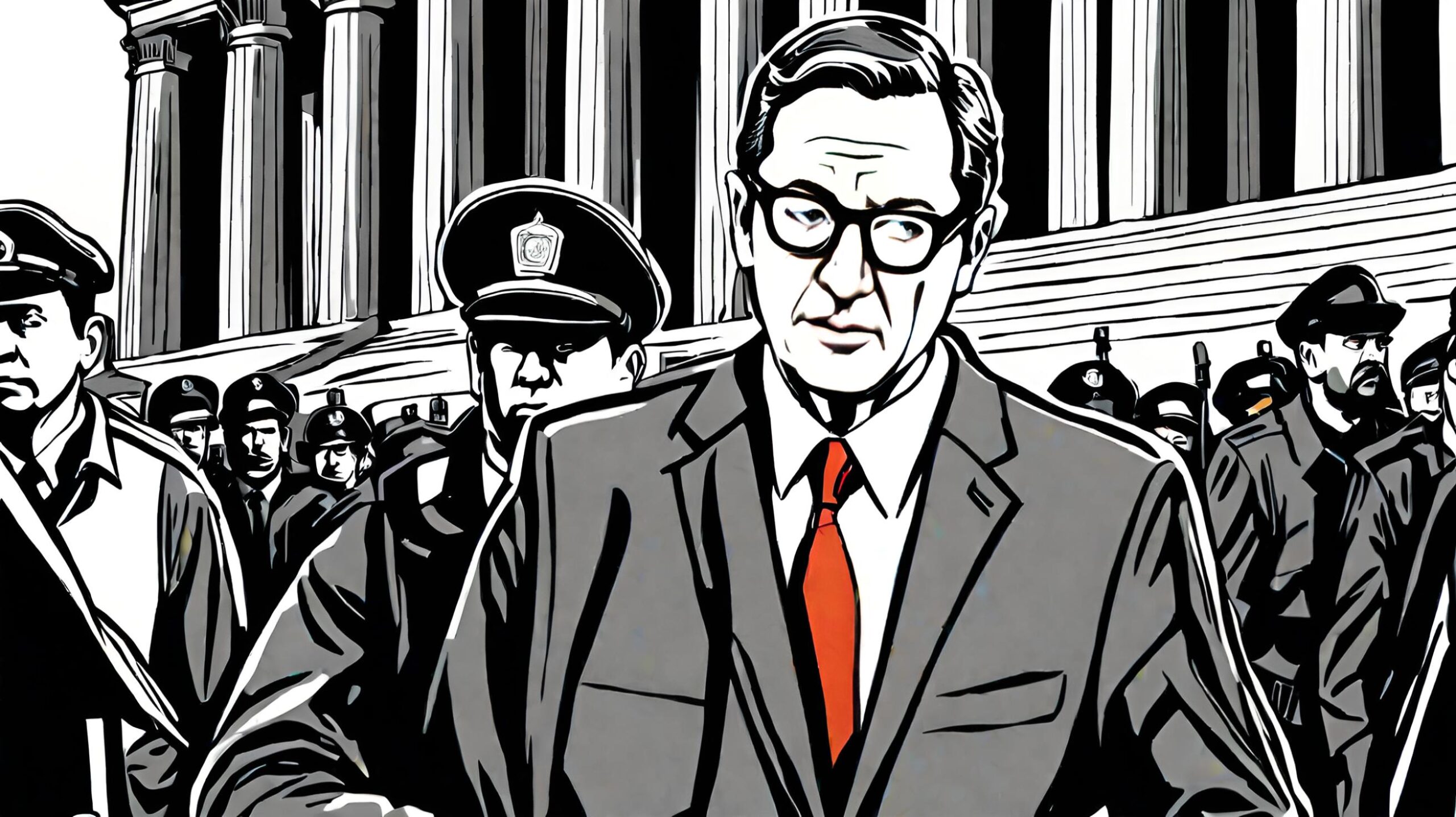Flashback to September 1
World History

The world of espionage is often shadowy and enigmatic, leaving many intrigued by its mysteries. However, for Nicholas Daniloff, a prominent American journalist, this clandestine world came ominously close to reality. A high-profile Cold War incident occurred on September 6, 1986, when the now-defunct USSR charged the American correspondent, Nicholas Daniloff, with spying. Bridging historical dimensions of Cold War politics, journalism ethics, and the notion of press freedom, this incident is worthy of being remembered and analyzed.
Nicholas Daniloff, working for the U.S. News & World Report, was an admired foreign correspondent based in Moscow. His reputation for covering Soviet affairs with unyielding honesty made his coverage a must-read for American readers interested in Soviet politics and life. However, on a fateful day in September 1986, the tide turned drastically for Daniloff as he was detained by Soviet authority, KGB, on accusations of espionage.
The charges were serious, alleging that Daniloff had been working on behalf of the Central Intelligence Agency (CIA) rather than merely covering the USSR as a journalist. This arrest sparked an international controversy, with the United States vehemently denying all the accusations leveled against Daniloff. The incident tied the two superpowers into a diplomatic furor that expanded well beyond the realm of free press and diplomacy, tainting the then critical U.S-Soviet relations.
The arrest not only strained the diplomatic ties between the U.S and the USSR but also brought the global spotlight on the restrictions on freedom of press prevalent in the Soviet Union. Daniloff’s case shone a light on the potential dangers journalists faced while reporting in countries with strict state control over information. This incident continues to be a significant chapter in the annals of journalism, emphasizing the need for the unwavering protection of press freedom worldwide.
The immediate outcome of this incident resulted in diplomatic talks held high at the Reagan-Gorbachev administration level. On a broader scale, however, it led to extensive debates on the implications and ramifications of espionage charges against journalists. It signified the hostile environment that Cold War politics created, casting shadows of suspicion even on professionals committed to truthful reporting.
The case of Nicholas Daniloff is transformable into many narratives: a chapter in Cold War history, a reminder of the challenges journalism can face, or a case for preserving press freedom from the indirect interference of political tension. Nevertheless, each narrative reaffirms the importance of an unbiased and uninfluenced press in society and internationals politics.
Advertisers need to understand the importance of this incident in the context of the broader Cold-War era. Knowing about this incident helps identify with the human aspect behind the intensively political Cold War era, contributing to a richer and more comprehensive understanding of the time. Marketing professionals can also take this incident as an essential reference point in brand advertising strategies, particularly in news media or history-related platforms.
The Nicholas Daniloff debacle also emphasized the drastic measures governments could take in the name of national security, and the chilling effects these measures can have on press freedom – a topic that remains relevant even today. Hence, digital marketers should optimize their content regarding this event with phrases such as “Nicholas Daniloff spying charges”, “Cold War press freedom”, or “U.S-Soviet relations” to attract traffic from users interested in these topics.
The case of Nicholas Daniloff held in the Soviet Union on espionage charges in 1986 stands testament to the adverse effects of geopolitics on journalism. A case like this further emphasizes the importance of maintaining press freedom and clear communication channels, even amidst political tensions. Decades later, this incident continues to hold valuable lessons for journalists, policy-makers, historians, and learners worldwide, reminding them of the inalienable role journalists hold in truth-telling and nation-building.
We strive for accuracy. If you see something that doesn't look right, click here to contact us!
Sponsored Content

USSR tests nuclear bombs…
On September 1, 1961,…

The Communist Labour Party…
Established on September 1,…

Ireland declares it will…
On September 1, 1939,…

Jacques Cartier French explorer,…
Renowned French explorer, Jacques…

the International Federation of…
Established on September 1,…

A joint American-French expedition…
On September 1, 1985,…

